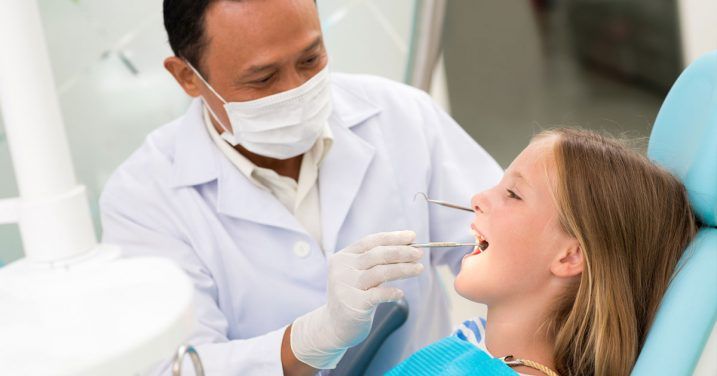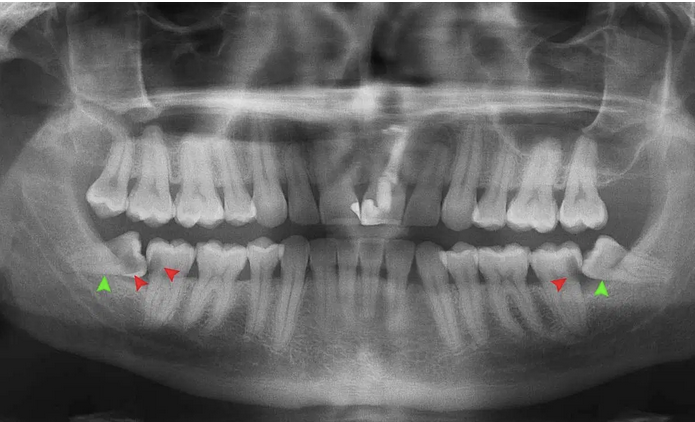A Different Kind of Wisdom
They say that with age comes wisdom, and apparently, wisdom comes in all shapes and sizes. Read up here on the causes of an impacted wisdom tooth as well as how it can be treated!

They say that with age comes wisdom, and apparently, wisdom comes in all shapes and sizes. A wisdom tooth is your third molar which usually appears between the ages of 17 to 21. Due to how they appear at a later stage in our lives, wisdom teeth usually affect other teeth and have a high chance of becoming impacted.
An impacted wisdom tooth is caused by the tooth not having enough room to break through the gum. As a result, it either gets stuck under your gum or hits your second molar. Impacted wisdom teeth are prone to bacteria, decay, and other dental problems.

Symptoms of an Impacted Wisdom Tooth
It is fairly easy to identify whether or not you have an impacted wisdom tooth. The first indicator would be pain. Impacted wisdom teeth, as well as partially impacted ones, may cause food to become trapped, and can make cleaning the tooth more difficult.
As a result, this may cause an infection. Other symptoms that may accompany the pain would be: swelling around the jaw; red, swollen, or bleeding gums; bad breath; an unpleasant taste in your mouth; as well as problems opening your mouth.
How Are Impacted Wisdom Teeth Treated?
The best way to remove a wisdom tooth is through extraction. Once your dentist confirms that you have an impacted wisdom tooth, most likely, they will have you get an x-ray so that they have a clear picture of how your tooth is positioned.
On the day of the surgery, your doctor may use anesthetic drugs to induce a type of anesthesia, such as: local anesthesia to numb your mouth, sedation anesthesia to relax you and block pain, or general anesthesia to make you sleep and not feel anything during the procedure. If you are feeling any pain during the surgery, do not be shy and alert your dentist so that they can adjust the anesthesia accordingly.
Your doctor may have to cut through your gums and bone to get to the tooth. Afterwards, they will stitch the wounds shut so that they could heal quickly. Your dentist may also advise that you bite on a gauze pad after the surgery so that it could soak up some of the blood.
Post-Surgery Reminders for Wisdom Tooth Extractions
Depending on the anesthesia your dentist uses, you may not be able to take yourself home. If you are still feeling drowsy or lightheaded after the surgery, have someone take you home.
Swelling and mild discomfort is common after a wisdom tooth extraction. Just make sure to not probe the area often. Your mouth will need a few weeks to heal, so make sure that when you brush the teeth near the area, you do so gently.
Here are other tips to help you in your recovery:
- Use an ice pack on your face to curb swelling or skin color changes
- Use moist heat for a sore jaw
- Gently open and close your mouth to exercise your jaw
- Eat soft foods like pasta, rice, or soup. Don’t eat hard, crunchy, or sticky foods that may scratch your wounds.
- Drink plenty of fluids
- Brush your teeth starting the second day. Don’t brush against any blood clots
- Take the drugs your doctor prescribes to ease pain or swelling
- Avoid drinking through a straw. Sucking may loosen blood clots that help your mouth heal
- Do not rinse your mouth too harshly. Your doctor may suggest rinsing gently with saltwater.
- Do not smoke. Smoking can slow your healing.
The number of things that you have to remember may be a bit overwhelming, so feel free to contact your doctor if you have any questions, concerns, or worries. It is also vital to remember that you should call your doctor if you develop a fever, or if your pain or swelling doesn’t improve.
For those who are looking for dentists or orthodontists to help them with their dental needs, SeeYouDoc has numerous dental professionals located all over the Philippines. Simply go to our website’s homepage, and filter through our list of doctors based on your preferred location and specialization. It’s that easy!
References: HealthLinkBC
